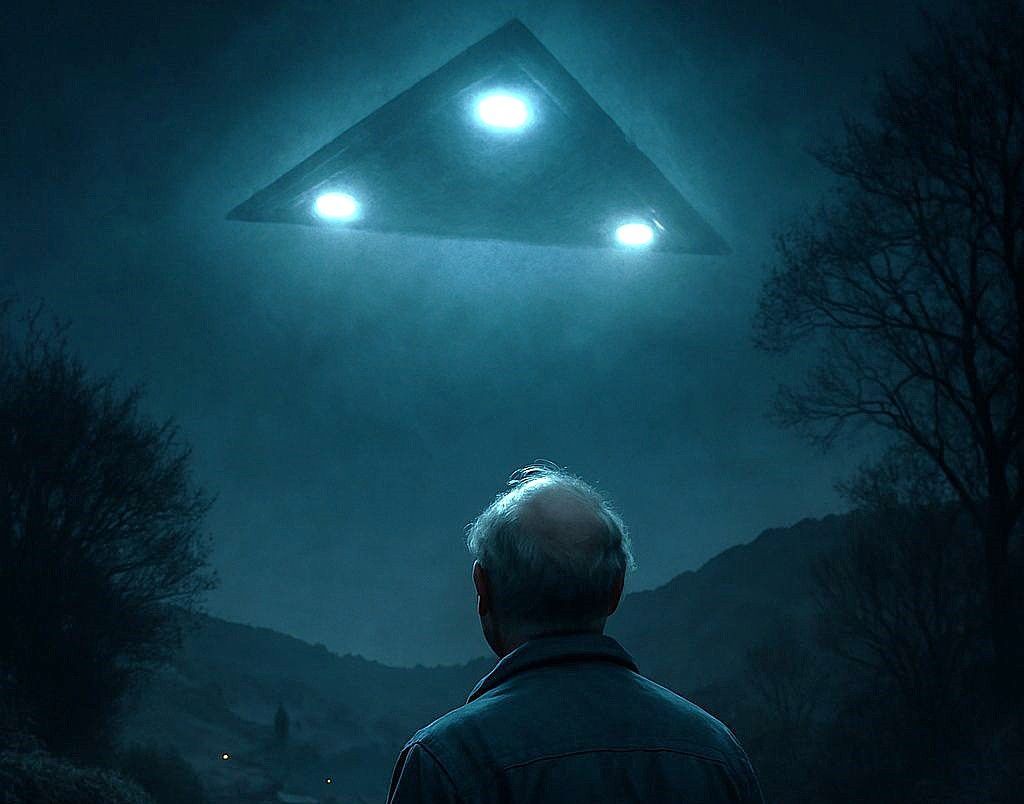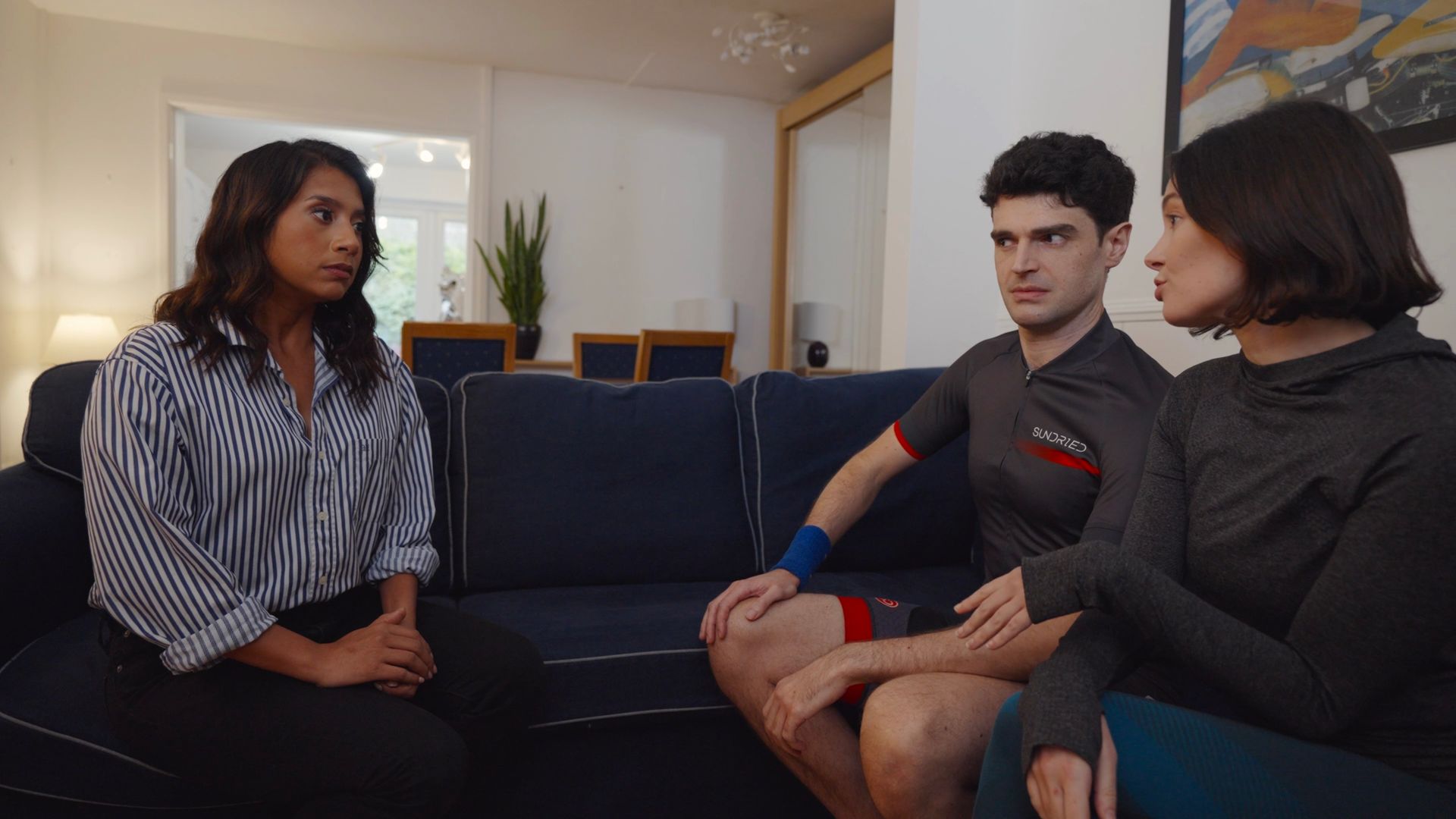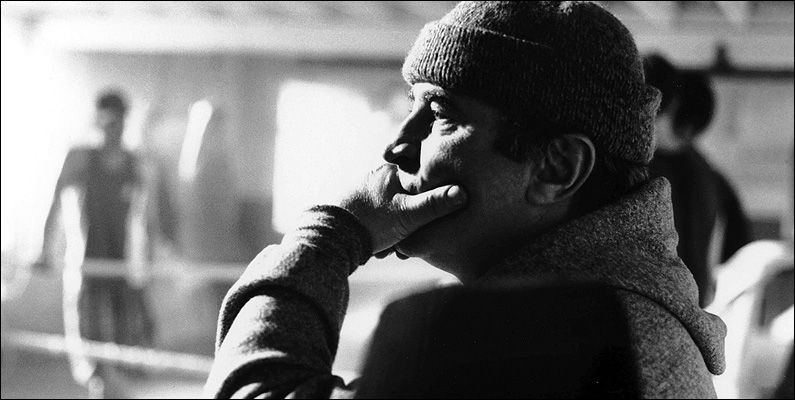Midlands Review of The Flaming Gazette
midlandsmovies • October 27, 2021

The Flaming Gazette
Directed by Richard Steele
2021
Brunosaurus Productions
A jaunty 1950s-inspired ditty on a gramophone sets the stage of a new 11-minute short called The Flaming Gazette that takes a swipe at social media from the perspective of the past.
A quick intro of sepia-toned barges, train tracks and church steeples invoke a bygone era before we are introduced to a man reading a newspaper at home.
After finishing the daily news, he sits down at a desk and begins penning a letter addressing his thoughts to a councillor about a new road in the area that he’s just read about. The following day he strolls past houses, hedgerows and a steam train (a social media “platform”?) to post his letter in the village post-box.
The slower pace of life in the past is reflected with measured editing whilst an intertitle reminds the audience of the black and white style of vintage cinema.
But a sly nod to the slow delivery of post keeps it very much a gentle local affair. So, 8 days later, our protagonist receives a reply from the councillor who writes to correct his correction.
And after reading, our man immediately sits down again to write a follow up his reply with even more disagreement. And back he goes to post it before an indeterminant amount of time passes and another response is printed in the newspaper’s letters column. And so on.
This film has a terrific central idea that plays with the notion of the inescapable back and forth arguments on platforms such as Twitter. The script is a little on the nose with the voiceovers from the authors of the letters stating lines such as “my opinion is valid and should be accepted just as much as facts – be they right or wrong”.
Steele’s builds upon his previous work where his satirical eye has already taken a wry look at film openings with his earlier short Get On With It (our review) and he again looks at the changing nature of modern media.
A few areas of improvement could be shot and sound quality – although functional, both elements slip up at times. And the letter writing moments could definitely use more variation in shot choices as it’s never the most exciting thing to portray on screen.
The comedy moments increase though as the two writers’ informed debate devolves into petty squabbling and the name-calling of modern trolling. Later on, visual memes also appear around the village too – printed out and stuck to telegraph poles for the public to see. And we see the endless repetition of the whole ordeal at the film’s conclusion as it all begins again with a funny nod to emojis.
In the end, director Steele has gone all in on his idea and this focus on a straightforward conceit we can relate to today can really benefit low budget short filmmakers immensely. And his take on the futility of certain social media interactions (“a pointless ordeal”) is well explored using the context of the slow manual technology of 1953.
With a few rough edges, the short’s charm, heart and social media rebuff mostly absolves the minor technical issues making The Flaming Gazette a fun ride. And no matter what era we find ourselves “linked in” with each other, the short proposes people should maybe think twice about counterproductive nature of eternal arguing.
Michael Sales

Stuart Wheeldon’s The Wirksworth UFO Incident is an interesting proposition. Taking the form of a documentary about extraterrestrial experiences across Derbyshire, it ebbs and flows across its 70-minute runtime; never quite building up enough tension to truly hold the audience but made with such clear passion that you.




